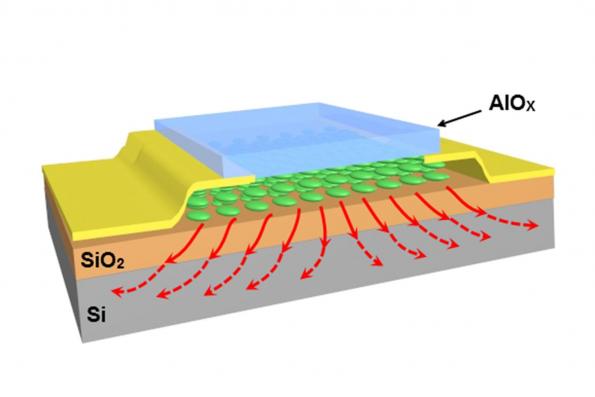(Nano-transistors) and the existence of high thermal conductivity (PhD in nano-microelectronics)
Researcher and author: Dr. ( Afshin Rashid)
Note: For the proliferation and evolution of nanotransistors, the existence of high thermal conductivity for single thermal nanotubes has been shown in theory. The results of laboratory experiments also indicate the existence of this feature in mass samples of single-walled carbon nanotubes as well as for single-walled single-walled nanotubes.
The thermal conductivity of single carbon nanotubes has been measured by computational methods. One group were single-walled carbon nanotubes that were stacked together to obtain the thermal conductivity of their assembly. One set was multi-walled carbon nanotubes that were separated . The thermal conductivity of these nanotubes was investigated separately. They achieved thermal conductivity greater than 011 mK / W for masses of single-walled carbon nanotubes. Also, according to the thermal conductivity of multi- walled carbon nanotubes separately is more than 300 mK / W.
Since the structure of carbon nanotubes for the production and propagation of nanotransistors at different temperatures has different values, it is shown as a function of temperature and in the form of (T) λ, starting from low temperatures and gradually increasing the temperature. , It is observed that the value (T (λ (near 011 K reaches a maximum value of 111.3 mK / W)) This maximum is seen as a peak in the graph (and then decreases with increasing temperature . The maximum value T (λ), which has been observed in studies so far, is related to a sample of a special nanotube of heat pipe measured at 010 K. This value is equal to 00111 mk / W. Therefore, the value of T (λ) nano The carbon tube is at its maximum comparable to the maximum value (T) λ ever measured. According to the diagram, even at room temperature, the thermal conductivity of the nanotube is Carbon is very high and equal to 0011 mK / W, in the methods of amplification of nanotransistors and nanotubes by synthesis of carbon nanotubes based on chemical catalytic vapor deposition (CCVD) including decomposition of carbon source on particles or small metal clusters as catalyst This method of amplification of nanotransistors involves heterogeneous and homogeneous process. The metals used for these reactions are intermediate metals , such as iron, cobalt, nickel. Compared to arc discharge and laser abrasion, carbon nanotubes generally form at lower temperatures of about 011 to 0111 degrees. This method is generally more selective for the production of multi-walled carbon nanotubes. Both homogeneous and heterogeneous processes are highly sensitive to the nature and structure of the catalyst used in addition to the operating conditions. Production of carbon nanotubes This method has a longer length (tens to several hundred micrometers) and defects compared to the arc method. Most defects in nanotubes are due to the use of lower temperatures compared to the arc method, which does not allow any structural rearrangements.
Conclusion :
For the proliferation and evolution of nanotransistors, the existence of high thermal conductivity for single thermal nanotubes has been shown in theory. The results of laboratory experiments also indicate the presence of this feature in bulk samples of single-walled carbon nanotubes as well as for single-walled single-walled nanotubes.
Researcher and author: Dr. ( Afshin Rashid)
PhD in Nano-Microelectronics




